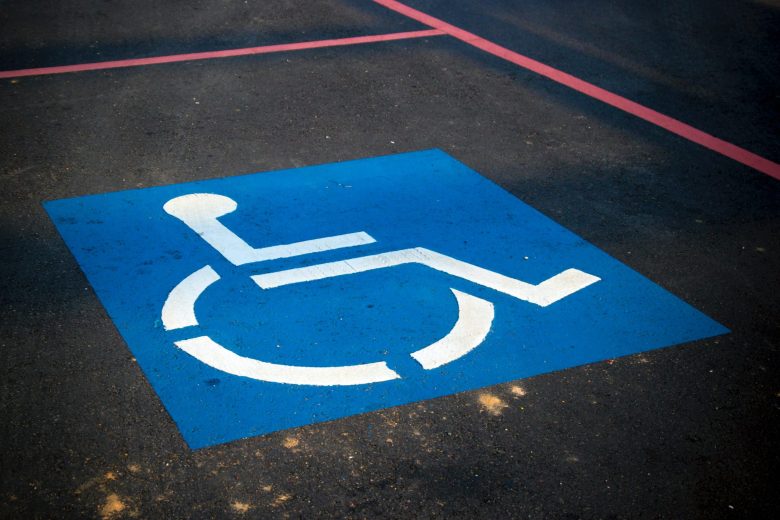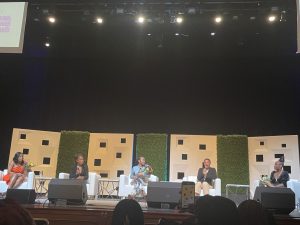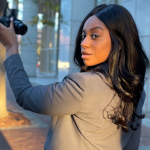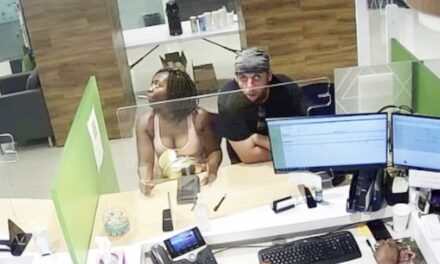By Mylika Scatliffe
AFRO Women’s Health Writer

Credit: Photo courtesy of Unsplash / AbsolutVision
Wesley Hamilton had just turned 24 years old when a gun cut him down, forever relegating him to a wheelchair. He had just celebrated his birthday just five days before multiple bullets pierced his abdomen, rendering him a paraplegic.
Years later he met his assailant face to face and thanked him for what happened on that night.
“I’m grateful to him. If it hadn’t been for what happened that night, I wouldn’t have the great life I have today,” said Hamilton. “Before I was shot, I never smiled. Now I smile all the time.”
Hamilton is now featured on season four episode of the popular Netflix series “Queer Eye,” where audiences learn of Hamilton’s background as a self-professed “bad boy,” growing up in the tough streets of Kansas City, Mo. The opening sequence of his featured episode showed several photos of a grim-faced Hamilton unapologetically giving the camera his middle finger.
“I was a product of my environment, so I felt like I didn’t have any choice but to sell drugs,” Hamilton stated on the show. His daughter Nevaeh (heaven spelled backwards) was born when he was 21, motivating him to begin living a legitimate lifestyle.
Not too long after he was shot, he was facing a life he knew absolutely nothing about. He was the single father of a toddler, a paraplegic, depressed and on bed rest for 21 hours per day. One day as he was transferring from his bed to the wheelchair, Nevaeh said, “Daddy you’re getting in your Superman chair.”
Everything clicked into place.
“I was feeling really weak that day and didn’t think I would ever get out of the head space of being depressed and feeling defeated, but my daughter’s words caused everything to shift. I didn’t want my daughter to know how weak I really felt. At that moment I knew I had to be strong for this little girl, and it just goes to show the value of how someone can speak life into you in an unconditional way,” said Hamilton.
His daughter’s statement was the catalyst for Hamilton to switch gears. Prior to the shooting, he was significantly overweight at 5’4” and 250 pounds.
“I consider myself a handsome guy, so when I was able to walk I was cool with being the heavy dude,” he said. But the weight caused significant problems when confined to bed 21 hours a day. Hamilton’s focus shifted to eating healthy and being physically active as an example to and for his daughter. In January 2015, he weighed in on a hospital bed and was astonished to learn he was down to 130 pounds.
“It was profound for me because I never could lose weight when I was walking. But here I was, without the use of my legs accomplishing something I was never able to before,” exclaimed Hamilton.
From his hospital bed he founded the non-profit organization, Disabled But Not Really (DBNR), in April 2015. Over the next three years, he changed the trajectory of his life. In addition to establishing the non-profit he became an award-winning body builder, competing all over the country, climbing ropes in his wheelchair, doing so many things he never imagined or even considered before he was shot.
Hamilton has built a massive public profile and following on all social media platforms. DBNR’s mission as stated on their website “is to empower and inspire individuals with disabilities to overcome challenges and reach their potential by fostering a mindset of courage, confidence and competence.”
The foundation aims to accomplish this “by restoring hope, peace and love,” and by promoting accessibility in the community. DBNR equally seeks to empower individuals with disabilities as well as their support networks.
“We seek to push people past the limitations they have acquired and develop a limitless mindset to transform their lives for the better,” said Hamilton.
The importance of being Black and in his position is not lost on Hamilton, especially when it comes to finding culturally competent care for Black people and other minorities. As the only Black, male, disabled founder of a non-profit organization, he provides an important visual representation to the disabled community. He laments that most hospitals don’t know how to work with Black, disabled individuals.
“People look at you differently when you’ve been shot, as if somehow you ended up where you’re supposed to be; and if you’re Black and paralyzed from something other than violence, they assume you’ve been shot anyway and there is still little sympathy or empathy,” said Hamilton.
No matter the cause, those living with disabilities want to be seen and valued as any other member of society.
With several locations along the Baltimore – Washington, D.C. corridor, the Kennedy Krieger Institute is a premier institution for care and research focused on improving the lives of children and young adults who live with injuries of the spinal cord, brain and musculoskeletal system.

Credit: Photo courtesy of Unsplash / AbsolutVision
Chris Mason-Hale is a community advocate with Maryland Center for Developmental Disabilities at Kennedy Krieger. However, his first introduction to Kennedy Krieger was as a patient, after he was injured during a head-to head football collision at 16-years old. His injury left him quadriplegic, paralyzed from the waist down and with limited dexterity in his hands.
“I spent several months as an inpatient at Kennedy Krieger after spending the first few months after my injury at the University of Maryland Rehabilitation and Orthopedic Institute,” said Mason-Hale.
During his time as an inpatient at Kennedy Krieger, he had numerous opportunities to spend time with patients in various programs and broaden his perspective as he learned of the challenges, resilience and strength of people with disabilities. Eventually he became a certified peer mentor through the Christopher and Dana Reeve Foundation, where he met with teenagers and young adults to discuss the lifestyle transition that comes with a spinal cord injury. Over time he grew to love providing guidance to others and learning more about the community and world of disabilities and aspired to make it his profession.
The AFRO discussed disability pride with Mason-Hale, who says he wants the public “to view disability as a strength and an essential perspective in creating equitable systems that can benefit all.”
“Disability pride has a different meaning for everyone. For me, disability pride is to accept disabilities as a part of society, to appreciate– not overlooked, or seen as less than others,” said Mason-Hale.
“Disability pride has a different meaning for everyone. For me, disability pride is to accept disabilities as a part of society…”
As a 16-year-old football player, Mason-Hale was focused on physical strength. “When I lost that, I wasn’t sure how to view myself…as time passed I began to understand that strength is not just physical, but emotional as well. I found that my way of contributing to my family, friends, and community was through emotional availability and listening,” said Mason-Hale.
The International Center for Spinal Cord Injury at Kennedy Krieger gave Mason-Hale the opportunity to experience many firsts. While there, he traveled to Colorado to handcycle. It was his first time away from home, his first time on a plane and his first time handcycling in rugged terrain.
“I came home from that trip more confident than ever that I could lead an independent life,” said Mason-Hale.
There are countless layers to the dramatic change in lifestyle that occurs after suffering a traumatic injury and losing the ability to walk.
“You’re kind of just being worked through your injury, but when you go back into society you still have to worry about PTSD and the mental health side of things. Not one doctor ever referred me for treatment for depression or PTSD or anything like that,” said Hamilton, who fell into a deep depression after his injury.
The lack of resources available to disabled people of color didn’t help.
“I’ve seen resources open up for people that don’t look like us,” Hamilton told the AFRO. “I once worked with a girl who received a car as a donation, but a young Black man I worked with couldn’t even find a wheelchair once it was time to leave the hospital. I had to give home one of my wheelchairs,” said Hamilton.
Now, through his foundation, he makes sure people– especially those that are underserved– are made aware of every resource available.
Hamilton said he believes everyone should have access to resources that will help with the transition and new normal that comes with becoming disabled.
“The amount of resources that are poured into communities of people that don’t look like us is insane. They are getting referrals to maintain mental wellness, resources for adapting homes and donations for cars. At first I didn’t even know I could drive. Once I learned I made sure to make a video on social media to show the community that this is possible!” said Hamilton. “People with disabilities are not much different than anyone else. We deserve to be seen and included in all spaces.”
The post Celebrating inclusivity during Disability Pride Month appeared first on AFRO American Newspapers .











